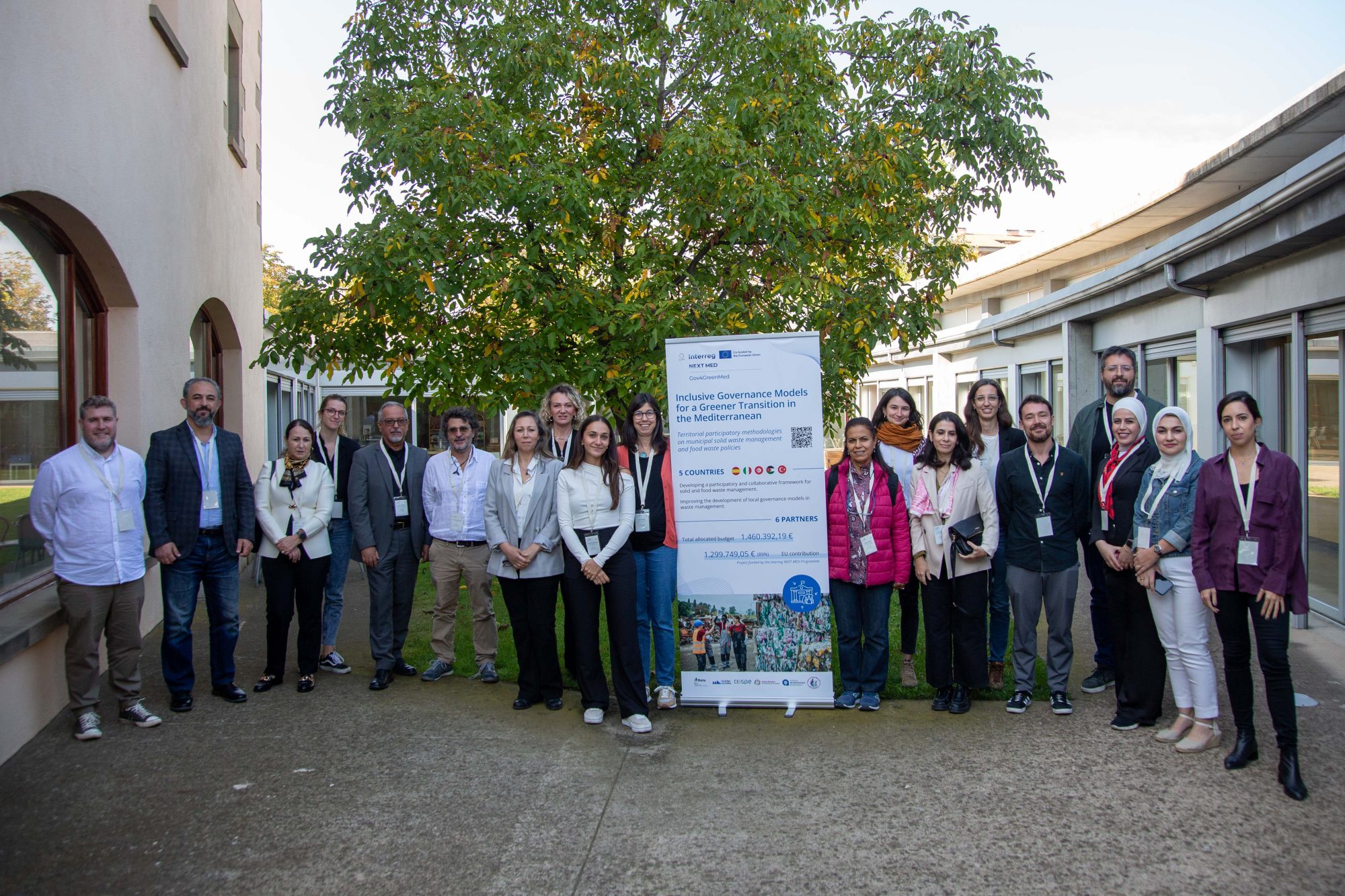Gov4GreenMed, a project for participatory waste management in the Mediterranean, begins
Gov4GreenMed is a two-year project that began this October to promote inclusive governance models for better municipal waste management across the Mediterranean

Although significant progress has been made in waste collection, recycling, and prevention, municipal and food waste remain pressing challenges across the Mediterranean. Participatory approaches are rarely implemented , and citizens and businesses play a limited role in decision-making. This October, the UVic-UCC BETA Technological Centre launched the Gov4GreenMed project, co-financed by the European Union through the Interreg NEXT MED program. The project addresses the need to develop participatory territorial methodologies to strengthen municipal and food waste management policies and practices. It will also develop a participatory collaboration framework for managing this waste.
This initiative has a duration of two years, a total budget of almost €1.5 million, and a contribution from the European Union of €1.3 million (89%). Gov4GreenMed has six partners and five participating countries, including the BETA Technological Centre of UVic – UCC and Medcities in Catalonia, the Cooperation for the Development of Countries in Emergency Situations (COSPE) in Italy , the International Center for Technologies and the Environment of Tunisia (CITET) in Tunisia, Future Pioneers for Empowering Communities’ Members in the Environmental and Educational Fields (FPEC) in Jordan, and the Antalya Metropolitan Municipality (AMM) in Turkey.
The project will test participatory methodologies through five pilot actions in different Mediterranean municipalities such as the Mancomunidad la Plana (Catalonia), Kumluka (Turkey), Nabeul (Tunisia), Scandicci (Italy) and As-Salt (Jordan), and each will address specific local problems in municipal waste management.
Concrete actions
In Turkey , in the Kumluca district of the city of Antalya It will convert municipal organic waste into organic fertilizer while raising awareness and providing training to farming communities, schools, and cooperatives. Tunis, Nabeul will develop Policies for waste prevention and recovery for large producers such as cafeterias and hotels will include composting, recycling, and a mobile application to improve citizen participation. In Italy, Scandicci (Tuscany) will create a local food policy and an “Organic District” connecting urban and rural areas. It will also develop educational activities in schools, hold a biodiversity festival, and implement food recovery initiatives. Finally, in Jordan, As Salt will implement home and commercial composting initiatives supported by awareness campaigns, the distribution of compost containers, and the development of best practices for replication. Finally, in Catalonia, the Mancomunitat La Plana will expand the reuse circuits of different waste streams, involving citizens and training people in repair practices.
A nearby example
The Mancomunitat La Plana is a public entity headquartered in Malla, comprising 14 towns in southern Osona and one in Moianès. The organization provides services in areas such as the environment (waste collection and treatment), social services (home care, housing, youth, equality), local development (training and employment), and funeral services. The organization manages services collectively that would be difficult or costly to provide individually.
BETA TC has collaborated with Mancomunitat La Plana on several projects, and using it as an example of good waste management for the members of the Gov4GreenMed project has been very helpful, as it has allowed them to learn about a clear and replicable model, at least on a small scale.
“We are very pleased to be part of this project and to start working together. For us, this participation is a way to raise awareness and highlight the value of our work, while also encouraging citizen involvement in good waste management”, says Mariona Bigas, environmental technician for the Mancomunitat la Plana.
“We hope this project will provide cities and municipalities tools – especially of a participatory – that they can incorporate into their decision-making processes, and that allow them to design and offer more efficient and useful public services for citizens”, explains Mercè Boy, project coordinator at the BETA Technological Centre.
In addition to its local impact, Gov4GreenMed will develop a policy document on inclusive local governance models, organize replication workshops, and host a final capitalization conference. These actions will ensure that the lessons learned can be shared and replicated by other Mediterranean municipalities.
Ultimately, the project aims to strengthen cooperation between public authorities and stakeholders, improve citizens’ quality of life, and accelerate the green transition in Mediterranean territories. Projects like this demonstrate, once again, BETA TC’s commitment to a more sustainable and cleaner environment, both locally and more broadly, across the Mediterranean region.
